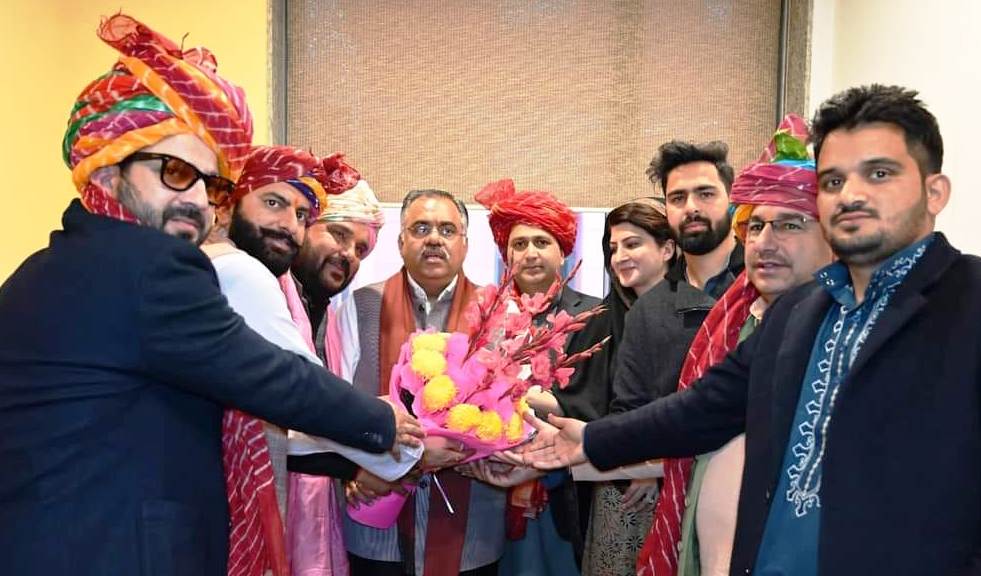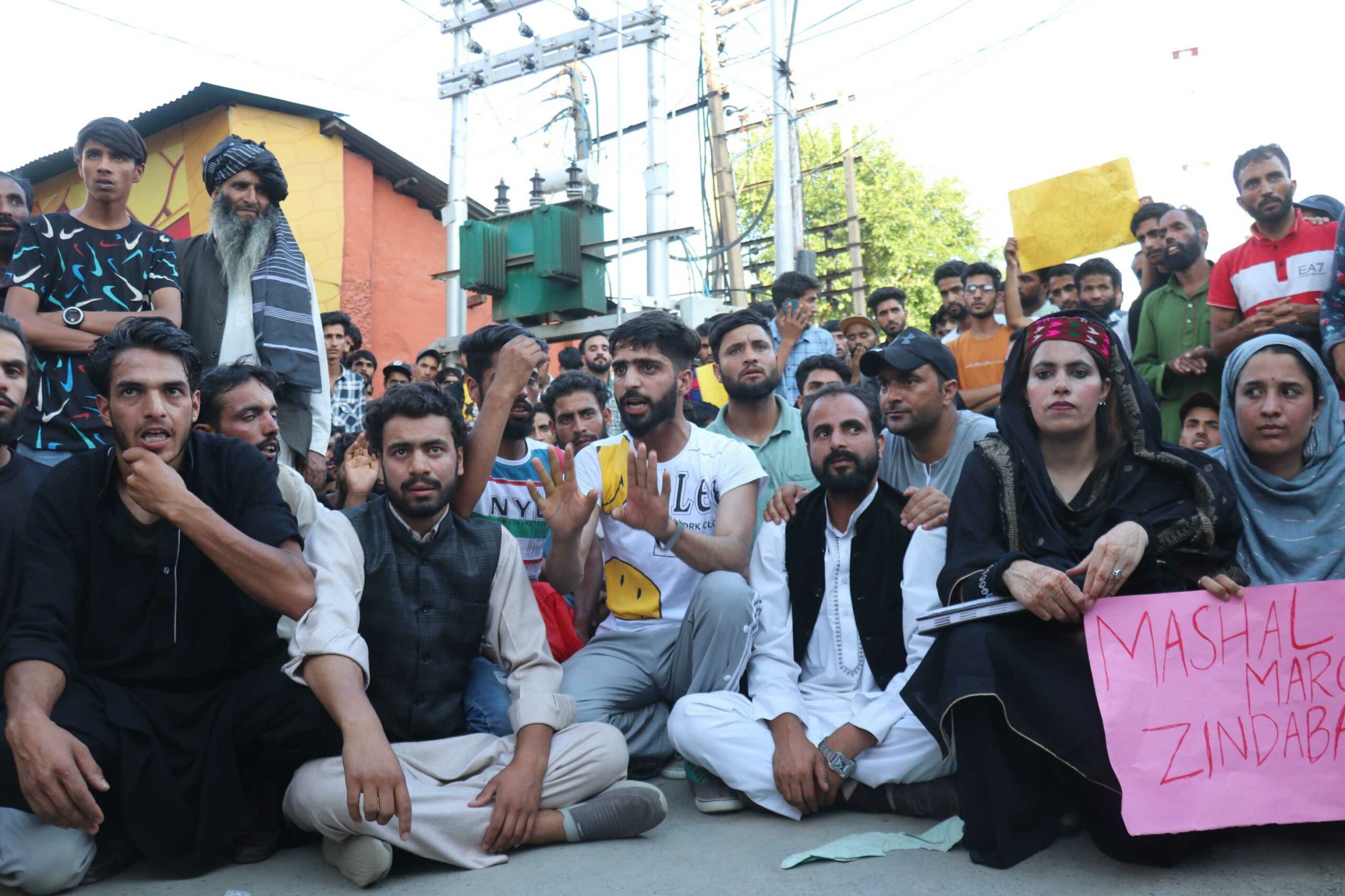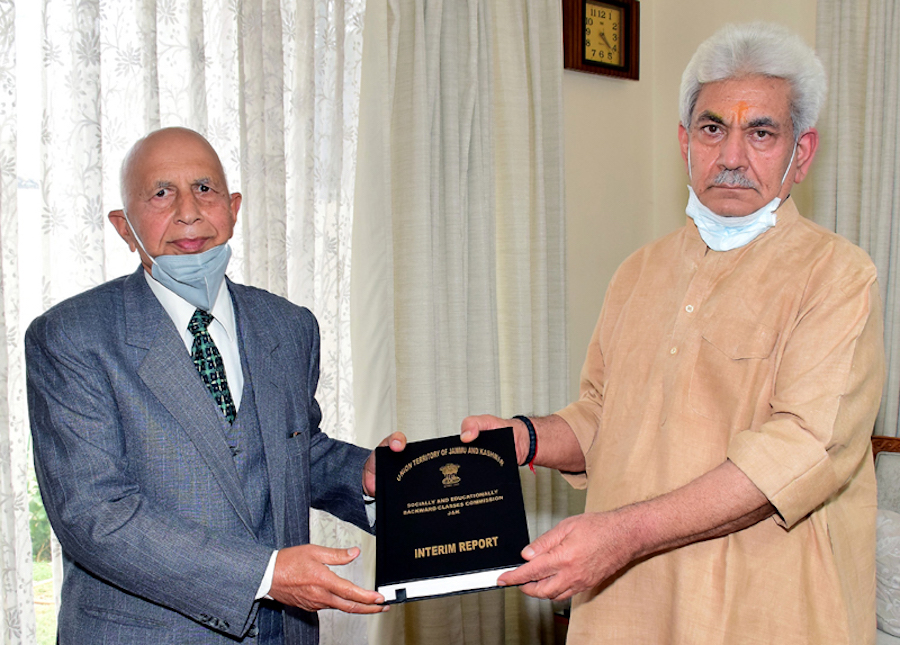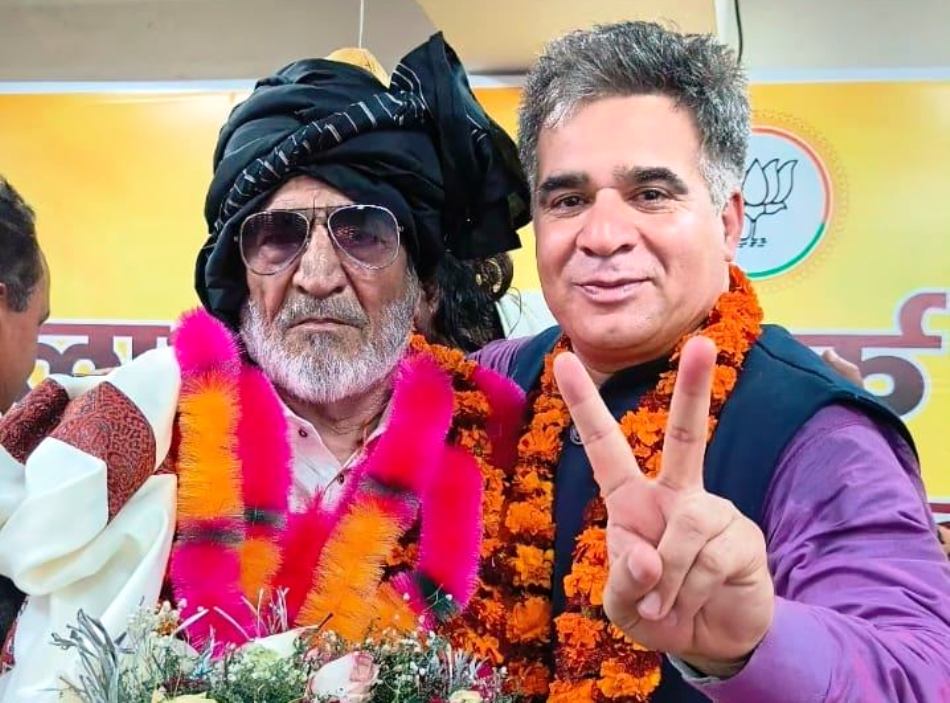With the inclusion of Pahari-speaking people (PSP) in the Scheduled Tribe (ST) list, the real issue that will now be debated is how the Gujjar-Bakerwal community will retain its 10 per cent benefit from the reservation schedule, reports Babra Wani

Regardless of the protests by the Gujjar and Bakerwal communities, both houses of the parliament passed the new laws providing reservations to Pahari speaking population (PSP) of Jammu and Kashmir besides Gadda Brahmin, Koli, and Paddari tribes. The Constitution (Jammu and Kashmir) Scheduled Tribes Order Amendment Bill, 2023 amended the Constitution (Jammu and Kashmir) Scheduled Tribes Order, 1989, to add new ‘tribes’ in the list and both houses of the parliament passed the bill.
Besides, the Lok Sabha approved the Constitution (Scheduled Castes) Order (Amendment) Bill, 2024, which included the Valmiki community as a synonym for Chura, Balmiki, Bhangi, and Mehtar communities in the SC list. This act amended the Constitution (Jammu and Kashmir) Scheduled Castes Order of 1956.
Tribal Affairs Minister, Arjun Munda noted that the bills provide justice to the castes and communities that have been demanding reservation for a long now. The bills were supported by all parties, with just a few questioning the delay.
While the bill had been on the government’s agenda for a couple of years, the Gujjar-Bakerwal communities have always held opposing positions. They have and still believe that the Pahari-speaking people have always been a privileged community and their inclusion will hinder the benefits meant for the marginalised Gujjar and Bakerwal.
However, all the top functionaries in the government from the centre to Srinagar maintained that the passage of the bill would not hinder the existing Scheduled Tribes’ benefits in any way. “I am categorically stating that all those who are already Scheduled Tribes in Jammu and Kashmir, their reservation quotas in public education and jobs will remain undisturbed,” Munda asserted. “Now, every one deserving of it will get the quota and I again assure you that no quota of existing STs will be affected.”

In Jammu and Kashmir, the administration worked on a two-pronged strategy to avoid tensions on the issue. On the day, the bill was to be passed by the parliament, massive security arrangements were made in the Gujjar-Bakerwal and Pahari-speaking areas to ensure no clashes. In Jammu, where the young generation is studying in higher centres of learning, prohibition orders under section 144 IPC were issued and implemented. In Srinagar, symbolic protests were managed without any crisis.
Once the bill was passed, LG Manoj Sinha did his bit. “Existing communities including Gujjar Bakerwal will continue to get the 10 per cent reservation and there will be no reduction in it,” Sinha clarified. “There will be no cut in reservations of Gujjars and Bakerwals. A new Sub Group will be created for reservations to newly added groups.”
Later, he again said: “I can say this with full responsibility that there will not be even 0.01 per cent cut in the reservations being enjoyed by Gujjars, Bakerwals and rest of the tribes. Even there will be no competition among the two subgroups. Reservations for both the Groups will be separate.”
Barring Gujjar and Bakerwals nobody opposed the inclusion from Jammu and Kashmir’s political class. The only response was that it should not hamper the share of the benefits that the Gujjar Bakerwal community was getting as a reserved tribe. Omar Abdullah said it must be “guaranteed and protected.”
Long Struggle
PSPs are insisting that they have been working towards attaining reservation for a very long time, almost three decades now. It was finally in March 2020 when the three-member GD Sharma Commission (the other two members included Muneer Khan, IPS, Rupa Lal, IFS) was constituted by the government of India to identify the issues about STs and SCs. The commission, in its report in 2022, suggested that the PSPs should be included in the reservations too. The suggestion was approved by the Registrar General of India and by the National Commission for Scheduled Tribes (NCST), after which the bill was introduced.

It was during various public rallies held across Baramulla and Rajouri in October 2022 when Home Minister Amit Shah first announced the inclusion of the Pahari-speaking people in the reservation list. The Paharis are the majority in Nowshera, Kalakote-Sunderbani, Rajouri, Thanamandi, Surankot, Poonch-Haveli, Mendhar, Uri, and Karnah assembly segments.
The Opposition
However, the move did not go well with the existing Scheduled Tribes’ members. They consistently insist that the inclusion of an ‘elite class’ will hamper the growth of ‘deserving ethnic tribal people.’ The Gujjar-Bakerwals make up the third-largest population of Jammu and Kashmir. They have been opposing the bill since its proposal. They spearheaded widespread protests in 2023 summer.
Anwar Chaudhary, the senior advocate, dubs the passage of the bill illegal. “The reservation bill for Paharis in Lok Sabha was passed illegally, and it will be contested in Supreme Court,” he said. “This bill is unconstitutional and we will oppose it.”
All the activists of the community though restricted physically in one or the other way, took over the virtual world and reacted strongly to the passage of the bill. They asserted they would neither forget nor forgive.
Activist and politician, Guftar Choudhary said the bill is giving a privilege to already privileged upper castes of Kashmir like Guptas, Mahajans, Syeds and others. “They do not adhere to the rules of Scheduled Tribe status. No upper caste was ever added to that list,” Choudhary said. “This is happening for the first time in Jammu and Kashmir that a community is being included in the ST list on a linguistic basis. This is clear-cut murder of the idea of reservation.”
Political Linkages
Even the community members believe the decision-making is linked to general elections and the ruling party is resorting to politics in the name of reservations. “As elections are on the head and this has been their agenda for the elections,” Guftar said. “These people who got inducted in the ST list are their vote bank.”
Within days after the bill was passed former NC member Shehnaz Ganai joined the BJP from Poonch. She had already distanced herself from the party her father belonged to and was waiting to make her new decision formal, insiders in the NC said.

Barely two days later, prominent Pahari leader and former minister, Syed Mushtaq Ahmed Bukhari (Rajouri), who quit the JKNC in 2022, also joined BJP. At a major function, he and his colleagues got into the right-wing party and the BJP Jammu and Kashmir President took selfies with all of them showing Riana in a tight embrace with the new entrants to his party. Bukhari later had Devinder Singh Rana waiting in Jammu with colourful bouquets.
Indications suggest various Pahari leaders in Kashmir, who have worked with different political parties for their entire lives, are being persuaded to join the BJP as the party has solved decades-old issues of the community. It remains to be seen how many will oblige the Parivaar.
Interesting Contest
Though the new reservation inclusion will make elections very interesting, it will be the Rajouri-Poonch-Anantnag Lok Sabha seat that will offer a sort of an enigma because it is pitting Gujjars versus Pahari versus Kashmiris’.
The Gujjar-Bakerwal community included in the ST list in 1991 constitutes almost nine per cent of Jammu and Kashmir’s population and dominates 74 per cent of the ST population. They enjoyed 10 reservations. In comparison, the Paharis are a bigger social and linguistic minority who constitute almost 56 per cent of the population of the Pir Panchal valley (Rajpouri and Poonch). Across the erstwhile state, they are said to be a million-strong community making up almost 8.16 per cent of the territory.
In anticipation of their inclusion in the ST list, the PSPs were entitled to four per cent reservation in government jobs and admission to professional institutions. Besides, they were entitled to reservations for economically weaker sections (EWS), and residents of backward areas (RBA) as well as the quota for those living in border areas.
Now, Rajouri and Poonch have eight assembly seats. With Gujjars now numerically weaker than Paharis, the BJP plans to get the Pahari support to bolster its minority Hindu strength in the region. Will things go as per the script? It is too early to say.

